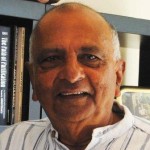Building A New Generation Of Sri Lankans Who Do Not Crawl Before Authority

 These are survivals from our medieval days. This is strange because most of the institutions of medieval times have been demolished in Sri Lanka by now. This particular phenomenon, therefore, dramatises the fact that social values can outlive changes in the material condition of men which, in the first place, generated them.
These are survivals from our medieval days. This is strange because most of the institutions of medieval times have been demolished in Sri Lanka by now. This particular phenomenon, therefore, dramatises the fact that social values can outlive changes in the material condition of men which, in the first place, generated them.
A few days ago, at St Thomas School in Matara, Minister Mangala Samaraweera made an inspirational address invoking kids never to crawl and worship before persons holding authority. I thought that was an unusual speech for a Minister of a government, who typically uses such an occasion for political point scoring or political conning. Mangala came in as chief guest and as he entered the precincts a kid came up in greeting to him, knelt before him and handed over a shove of betel leaves in traditional fashion. This incident had been the occasion for the Minister to make this statement. And it was something that should have long ago brought to the nation’s attention.
“We must build a new generation of people in our country who do not prostrate and worship those in official authority,” exclaimed Mangala Samaraweera.
The Minister spelt out in detail as follows: we must worship (in the case of Buddhists) only the Buddha, our parents and our teachers. Never prostrate before Ministers, MPs, Pradeshiya Sabha Councillors and so on. Plainly, this is what is happening in Sri Lanka. Ministers are worshipped, MPs, local councillors or anybody in the cloak of some level of authority are worshipped.
The irony is that most of these persons are downright corrupt. They rob, cheat, lie, murder and so on. In such a context, the mere act of prostration and genuflection is enough to boost the image of the particular person in authority. Such persons in authority simply love adulation and expect that from the people. They are addressed as ‘thuma,’ which is the short for ‘uthuma,’ meaning ‘noble one’-although the person may be a lout or cad as more often most pollies are.
Don’t go far away; just switch on the TV anytime. A person of some office is addressed by media personnel as ‘oba thuma.’ Why not simply ‘oba?’ They wouldn’t do that as their tongues are twisted to say,’thuma,’ or ‘oba thuma.’ The problem is two-way since the recipient official would consider it insulting if it be that he is not so addressed. Both the social expectation of the recipient and the sense of appropriateness borne by the giver are intertwined. It is one of those vicious cycles.
Human societies are generally status seekers as elucidated by Vance Packard in his classic, “Status Seekers,” written long ago. That is how we keep our egos going. Self-esteem is crucial in our lives. On the other hand the precise styles of status seeking differ from culture to culture and the essential determinant of that style is the way in which society placates the seeker of status. In Australia where I live, a MP or Minister would feel ashamed of himself and thoroughly embarrassed were someone to come and genuflect before him and address him. The status seeker here would pursue money that would let him purchase and consume ’high status,’ items like cars, homes, river -cruising holidays and so on. Unlike in England, there isn’t even an aristocracy here in Australia. Our society here is by and large egalitarian and it publicly flaunts egalitarian values. The boss and employee of a corporation are ‘mates,’ or machangs.
In Sri Lanka, on the other hand, the boss talks down the employee. There is little bottom -up consultation. At village level, the master addresses his subordinate employees in a lower rhetoric. The Prime Minister is referred to by media men in Australia simply as ‘Malcolm,’ or ‘Mr Prime Minster.’ In Sri Lanka, it is ‘garu’ or ‘respected.’. The Sri Lankan President is ‘uthumanan,’ or ’athi garu,’ although, in fact, he may be a blackguard or vile character.

